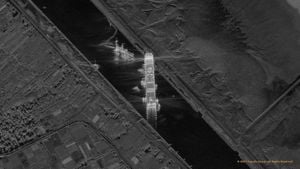A powerful earthquake struck Turkey and Syria on Monday, causing widespread destruction and tragedy across both nations. Early reports indicate the quake measured 7.8 on the Richter scale, making it one of the most devastating seismic events in the region's recent history.
The earthquake hit at approximately 4:17 AM local time, with its epicenter located near the border of Turkey and Syria. Buildings collapsed, and entire neighborhoods were leveled within seconds, sending residents scrambling for safety. Many were still asleep when the tremors began, leaving no time for evacuation.
According to the Turkish Disaster Management Authority, over 1,000 people have been confirmed dead, with many more trapped under the rubble. The situation is dire, and rescue teams are struggling against the clock to reach survivors before their chances of survival dwindle.
"It’s unimaginable. You can hear people screaming for help under the ruins, but we just can’t reach them," said Fatima Al Khatib, a local resident who witnessed the chaos. Witnesses described buildings collapsing like houses of cards and said the ground shook violently for nearly one minute.
Rescue operations have been launched, involving international teams from neighboring countries and organizations. Teams from Greece, Ukraine, and Egypt are among those deploying search-and-rescue experts equipped with dogs and technical tools to locate missing persons.
Mohammed Aydin, the governor of the Turkish province of Gaziantep, where the earthquake was most severe, stated, "We are doing everything we can to rescue our people. We need more help and support from all around the world to meet the urgent needs of our affected communities." The government declared a state of emergency, releasing additional resources and personnel for rescue efforts.
Unfortunately, the aftermath of the earthquake arrives amid the cold winter months, complicate matters for thousands of displaced individuals who now lack shelter or basic necessities. Aid organizations have sounded the alarm for immediate assistance, including warm clothing, blankets, and food supplies.
Syria’s civil war has already rendered its infrastructure fragile, and the impact of the earthquake adds another layer of distress for many communities. The United Nations has called for urgent humanitarian relief for affected areas, particularly where medical care is needed.
Local hospitals are overwhelmed with the number of injured, and authorities are calling for volunteers to help. "These people need our support – not just now but for the weeks and months to come," said Dr. Hana Ibrahim, who is managing one of the emergency response units.
International aid is being mobilized, with countries around the world pledging assistance. Nations such as the United States, Germany, and Saudi Arabia have offered financial aid and rescue teams to help Turkey and Syria recover from this catastrophic event.
The quake serves as yet another devastating reminder of the seismic vulnerabilities present throughout the region. Scientists have noted how the tectonic plates beneath Turkey and Syria make this area particularly susceptible to earthquakes. Although the region has experienced other quakes, the scale of this disaster is particularly severe.
Survivors remain hopeful, even as despair surrounds them. Many are banding together to help one another, sharing whatever resources they have left. "Together we will rebuild; we will not let this defeat us," stated community leader Selim Basar, surrounded by the ruins of what was once his neighborhood.
Throughout the crisis, there’s been immense solidarity shown, not only by those within Turkey and Syria but also from the global community. Fundraising efforts are already underway, and social media is abuzz with calls for contributions to aid those affected.
Despite being engulfed by loss and devastation, heartwarming tales of survival surface. Rescue teams have pulled children from the rubble, and neighborhoods are gathering supplies as they await the arrival of aid. Community spirit remains undeterred, and many have stated, "We’ll rebuild from this. We just need some help right now."
Authorities anticipate the death toll may rise as rescue efforts continue and teams are deployed. Current estimates suggest it could take weeks—if not months—to adequately assess damages and provide necessary long-term support.
With the world watching, the resilience of those affected by this disaster rises to the forefront. Turkey and Syria are not just regions on the map; they are filled with people who are hopeful for the future, even as they navigate the aftermath of this earthquake. Even amid despair, the humanity shines bright through acts of kindness and solidarity.



